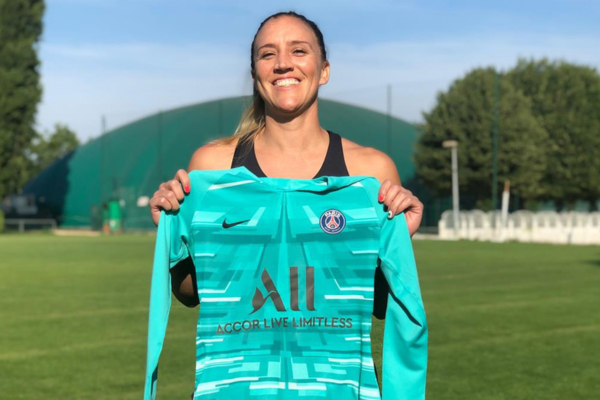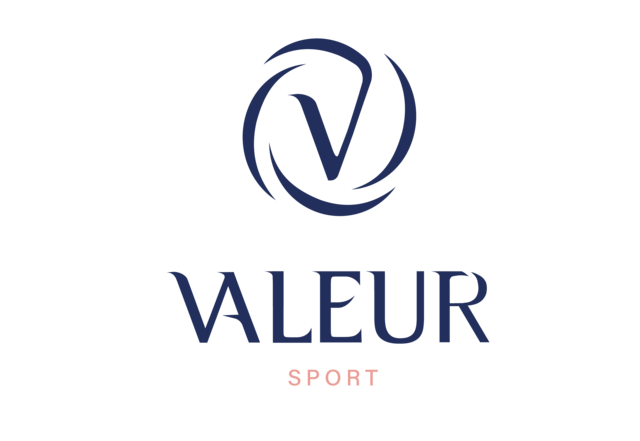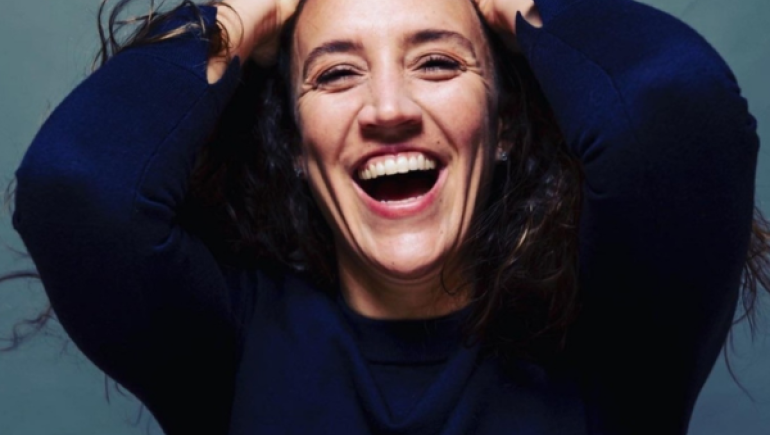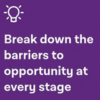Women’s sports are on the rise. There has been increased fan engagement, viewership numbers are climbing, and global attention on stars like Aitana Bonmati.
Despite the surge in popularity, there is a harsh reality: an economic landscape revealing the financial struggles, opportunity inequalities and trade-offs that define the present female athlete and worker.
Arianna Criscione is the CEO of Valeur, a company committed to championing pay equity within the sports industry. Through their data-led approach, Valeur strives to empower women with the skills, networks and skills to overcome barriers, negotiate fair compensation and access opportunities.
TRANSPARENCY
The first woman to graduate from the FIFA Diploma in Club Management and recipient of a master’s degree in football business, Arianna continues to leverage her experience and expertise to level the playing field for women in sports.
Arianna sat down with ConnectSport’s Kyrenia Shipillis to talk about Valeur, rewriting the narrative around women’s sports and an equitable future where transparency shapes gendered conversations.
Before Valeur, Arianna led an incredible professional career in women’s football. The former goalkeeper played in five countries. This included a successful five-year spell with Torres in Italy and ending her career at Paris Saint-Germain Féminine where she was employed as a player and an off-field role as sponsorship manager.
Arianna experienced first hand the financial and systemic inequalities in women’s football.

“My first salary in Italy was €800 a month plus room and board. But they would not always pay us on time. They could go six, eight months without paying us and then just give you two or three months. So you were always behind,” she said.
That was one of the reasons she began working on additional projects while in Italy. Arianna created an English school where she taught the language to other sports clubs.
The biggest contract she had was at PSG. However, half came as a player while the other was made through her role in the marketing department.
DISCREPANCY
“My contract was €2,500 a month. I think that’s slightly above minimum wage in France. They covered my apartment and they gave me a car.
“I did have players on my team that made more in a month, than I did in a year. But the discrepancy on players’ salaries was substantial.”
She couldn’t afford to go shopping with them, or eat at the same restaurants. At many of her clubs, Arianna had to fight for the salary she was given. It made her realise she was always going to need a back-up plan to make money.
Working to earn alongside her passion remains unchanged with the establishment of Valeur. Arianna attempted to give away the concept of Valeur to numerous organisations before participating in the adidas Breaking Barriers Project and officially launching it.

“It just kept frustrating me seeing the market and what was happening to women in the market.
“New jobs were popping up all the time and people would come to me and ask if I was interested in those jobs. Other people would ask how much they should get paid and I didn’t know,” she said.
The gap in the market encouraged Arianna to take on the project herself. Along with co-founder Preeti Shetty, they devised a business plan that has carried them through the past 18 months.
However, Valeur has little to do with being a player. The current ecosystem makes it difficult to achieve equal pay in male and female player salaries: “Being the third string goalkeeper at PSG women, I was going to be paid nowhere near the same as the third goalkeeper for the men.
PERFORMANCE
“The ecosystem and the way sponsorship comes into the teams doesn’t make sense that they would pay the same salaries to the women and men’s teams.”
That does not mean that investment into either team cannot be equitable. But at Valeur, it is about equal pay for equal work. “If you work in the marketing department for a club and you sit next to a man and you find out you make less money than them despite being in the industry for a similar amount of time, then there is no reason that you should not be paid equally or better, depending on your performance.”
The pathways offered for women to achieve equity are scarce: “I have spoken at many conferences and I’ll be on stage with a male ex-player and I find out he’s being paid more than me to speak.
“I know that I do my work; I know that I’m prepared to be up there, and honestly most of the time I think I’m more entertaining than the man up there! So I think I should actually be paid more than he is,” she laughed.

The issue is greater than a battle for equity and equality. Women should not be given opportunities because it is the right thing to do, but because they can both make organisations become profitable and work to a high standard.
“It is not right that women are systematically paid less money, especially in the sports industry. And that when you look up into the leadership roles of the clubs and organisations, there’s not many women there.”
Valeur has devised a three-pronged approach to tackle gender inequalities in sports.
Its data-driven method offers transparency on salary information across the sports industry, while its pillars of community and business membership allows women to connect, share experiences and access opportunities.
IMPORTANT
Arianna said: “We believe it’s about the data. If you can actually see where you are in the industry and where you can go, it will help you make more educated decisions for yourself.
“In addition to data-driven education, Valeur offers Expert Exchanges designed to boost women’s confidence in areas where market research has identified they want and need a bit more support.”
When salary transparency in sports is tabled, the benefits are questioned. But for Arianna, these benefits are endless: “It is better for your ROI (return on investment) to keep your employees happier and trusting in your organisation.
“Employees who know managerial salaries are more likely to stay (with the organisation) because they can see a pathway for where they’re supposed to be going. There’s tons of data on why it’s so important to show salary transparency within the organisation.”

These findings also apply to the gender pay gap in sports. She added: “There’s proof that diversity in boards creates a better board, creates more business, creates better ROI.”
Valeur Sport is only the tip of the iceberg for Arianna’s ambitions. In the future, she hopes to transform Valeur into a multi-entity organisation: “Valeur is the overall company, but this is Valeur Sport. Then we want Valeur Medical, Valeur Law, Valeur Architecture.
“This is the industry that we know best, and we want it fixed for our friends and ourselves. We are the women that we’re fixing it for, but once we prove it in sport, we can scale it to other industries.”
To find out more visit valeursport.com
Pic credit: Fotos.











